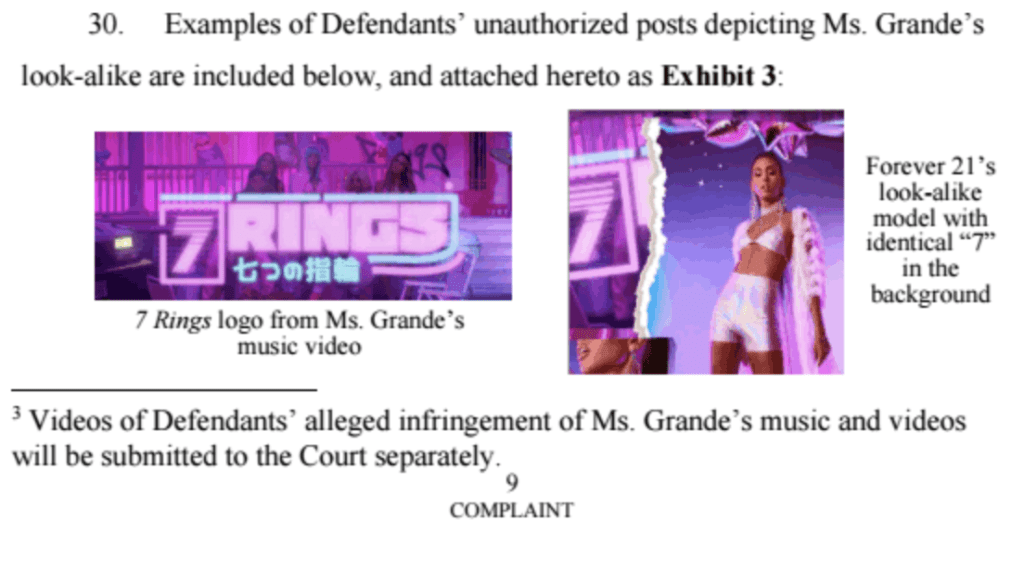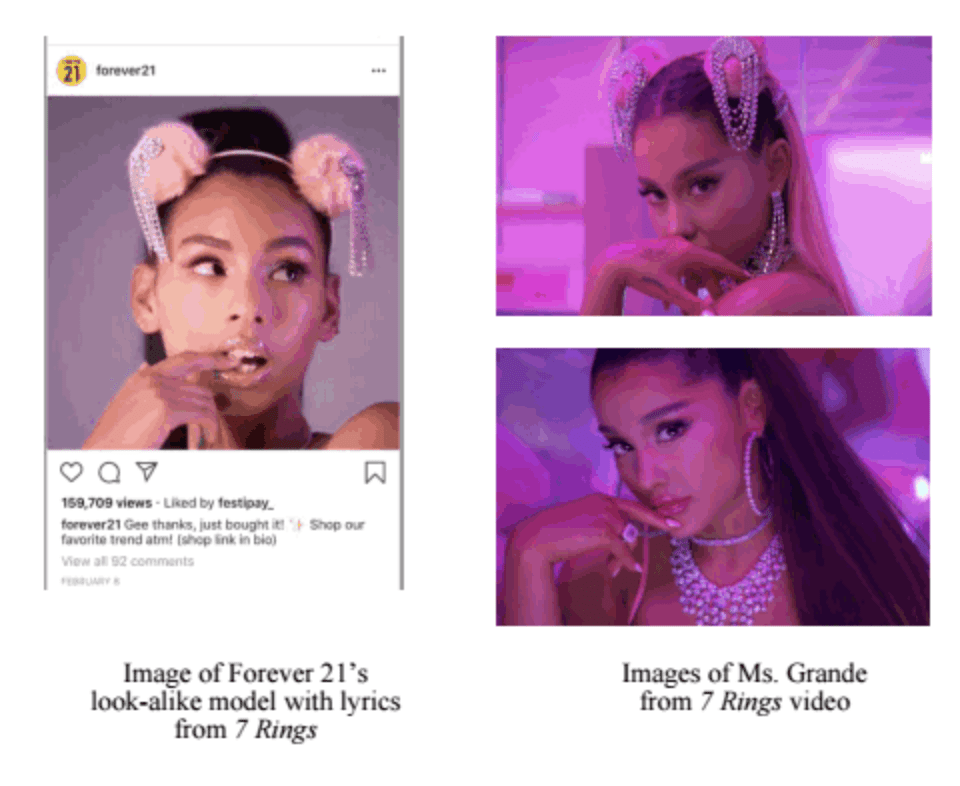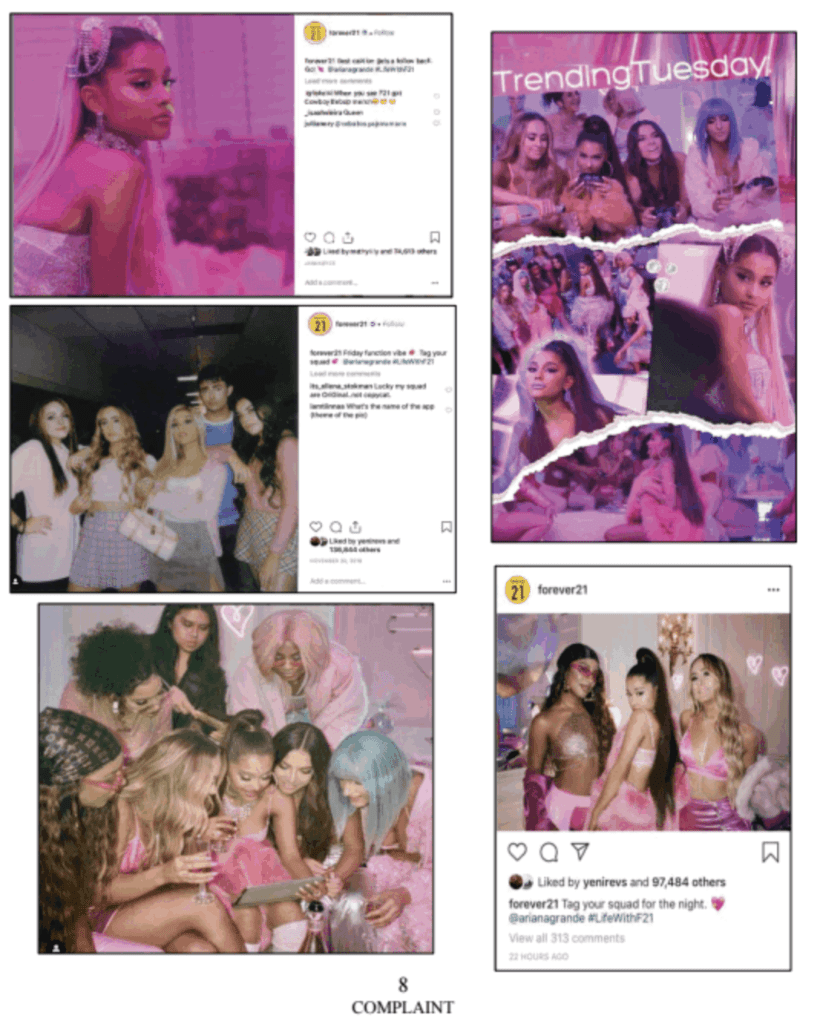In a trademark infringement lawsuit filed in federal court in Central District of California, famous singer Ariana Grande filed suit against Forever 21, Inc. and its subsidiaries alleging trademark and other intellectual property infringement under the Federal Lanham Act, Title 15, of the United States Code, Copyright infringement under the 1976 Copyright Act, Title 17 of the United States Code, and violation of the common law of right of publicity recognized under California law. A copy of the federal complaint is accessible here.
The lawsuit alleges that references to the singer’s “7 Rings” video posted on Forever 21’s Instagram account, use of models that are “lookalikes” to Grande constitute infringement of the pop star’s intellectual property and privacy rights under rights of publicity, and otherwise create a false endorsement.
Some of the promotional materials included in the complaint are below:



Entrepreneurs, technology startups, and other online and offline retailers looking to reference famous celebrities should legally clear the content with an experienced intellectual property, entertainment and trademark attorney.
As this lawsuit between Ariana Grande and Forever 21, Inc. illustrates, the recognizable intellectual property rights in the right of publicity, intellectual property rights clearance can help reduce legal risk in connection with the unclear line between infringement and lack thereof when a company uses, for example, talent that looks similar to a famous person, or “lookalikes”.
In addition, use or overt reference to a single celebrity’s body of work may create a false association, and otherwise, explicit use of a celebrity’s name or image is not necessarily required to constitute intellectual property infringement.
If the material conjures up other people’s intellectual property, particularly in advertising speech as is the case here, the potential exposure to lawsuit for trademark infringement, intellectual property infringement, and violation of right of publicity is present, and careful legal review by an experienced trademark and intellectual property attorney is critical.


